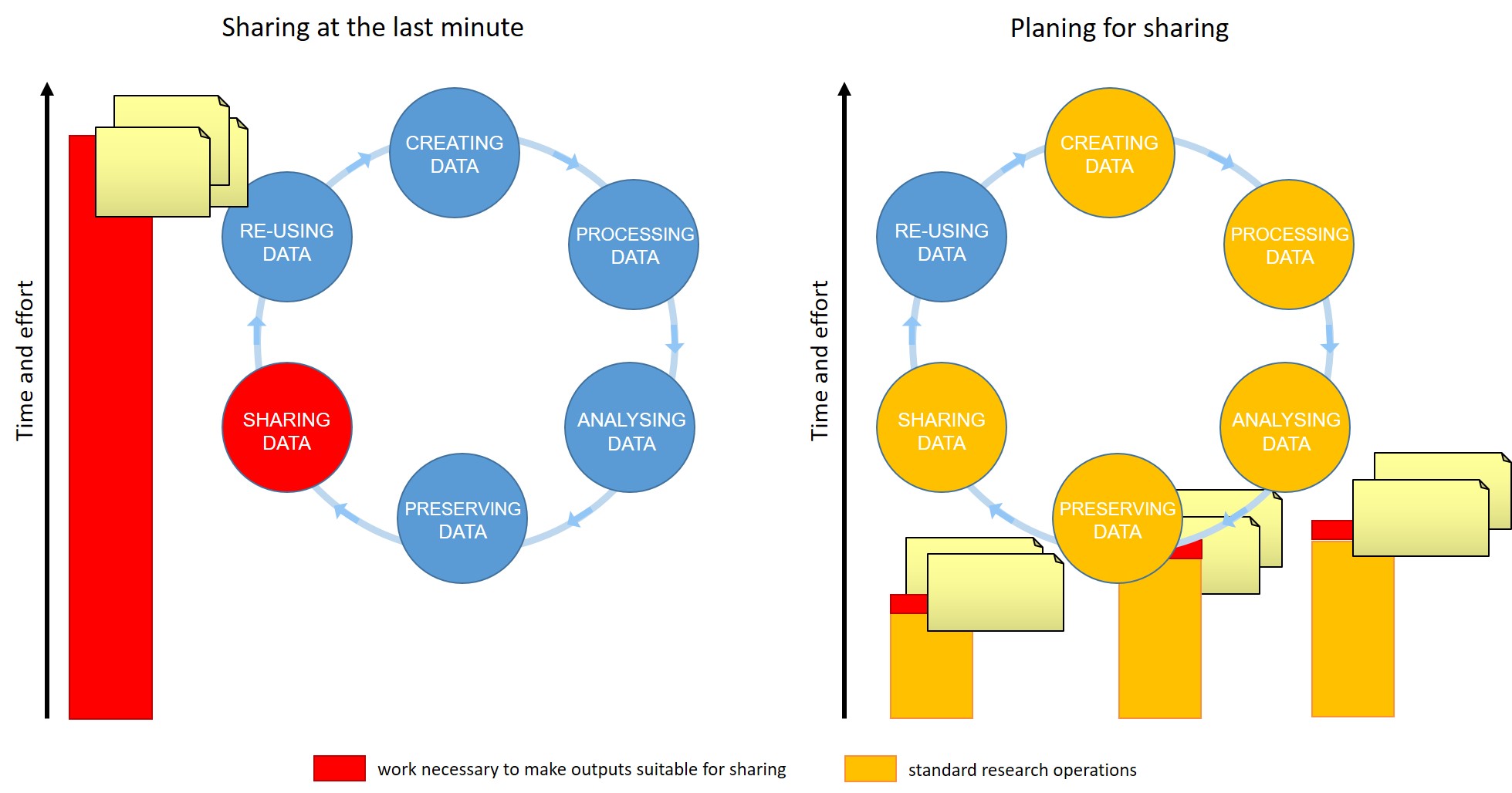Welcome
Last updated on 2025-01-28 | Edit this page
Estimated time: 15 minutes
Overview
Questions
- Who are we and what are we going to learn?
Objectives
- Introduce ourselves and the course
- Setup our learning platform
- Better research by better sharing
Introductions
Introductions set the stage for learning.
-– Tracy Teal, Former Executive Director, The Carpentries
Hello everyone, and welcome to the FAIR in biological practice workshop. We are very pleased to have you with us.
Today’s Trainers
To begin the class, each Trainer should give a brief introduction of themselves.
Now we would like to get to know all of you.
Who are you and what are your expectations from the workshop
Please introduce yourself shortly and tell us:
- Why are you taking this course?
- What goals do you have for the follwing days?
Better research by better sharing
For many of us, data management or output sharing in general are considered a burden rather than a useful activity. Part of the problem is our bad timing and lack of planning.
Data management is a continuous process
 Figure credits:
Tomasz Zielinski and Andrés Romanowski
Figure credits:
Tomasz Zielinski and Andrés Romanowski
When should you engage in data sharing and open practices?
- Data management should be done throughout the duration of your project.
- If you wait till the end, it will take a massive effort on your side and will be more of a burden than a benefit.
- The overheads of making data suitable for sharing at each stage of data life-cycle are small comparing to the other actions involved
- Taking the time to do effective data management will help you understand your data better and make it easier to find when you need it (for example when you need to write a manuscript or a thesis!).
- All the practices that enable others to access and use your outcomes directly benefit you and your group
In this workshop we will show you how you can plan and do your research in a way that makes your outputs readily available for re-use by others.
Our agenda:
Day 1 We will start with explaining Open Science principles and what the benefits are of being open for you and society. Then we will talk about FAIR principles which define steps you/we should take so that our “shared” outputs are of value. We will finish with a brief introduction to metadata and ontologies, and how to be precise to deliver FAIR outputs.
Day 2 We will show you how to use metadata in Excel, and the benefits of using online records for documenting experiments. We will talk about working and organizing files and appropriate file naming conventions using Excel or CSV tables to store and document data.
Day 3 We will introduce Jupyter notebooks as a tool for reusable data analysis. We will talk about Version Control. We will teach how to describe your projects using simple text files or customized templates.
Day 4 We will show you how public repositories make your outputs accessible and reusable. We will consolidate our knowledge of FAIR ready data management and what other tools can help you during your research.
Online workshop specifics
Our learning tools
Before we begin let’s explain how to use the tools:
- Raising hands
- Yes/No sticker
- Chatroom for links not for jokes
- Breakout rooms, leaving and rejoining
- using pad, answering questions in pad
- where to find things If needed, check the pre workshop setup, ask to report problems and help at a break or after the session.
- Do not be shy
- Be nice
- Remember, you can do better research if you plan to share your outputs!
